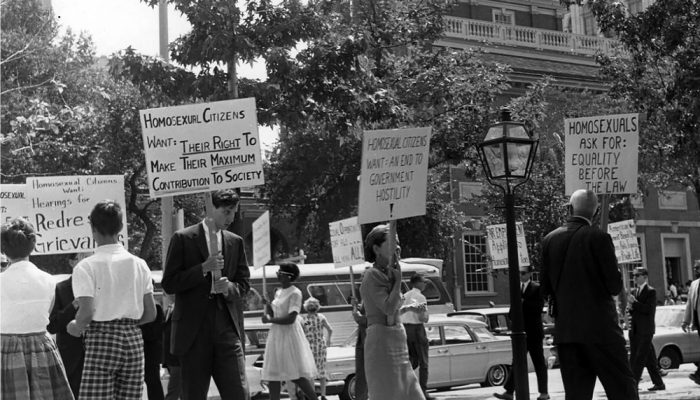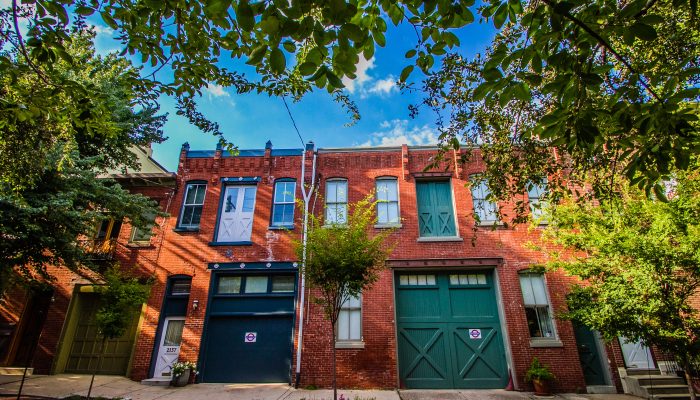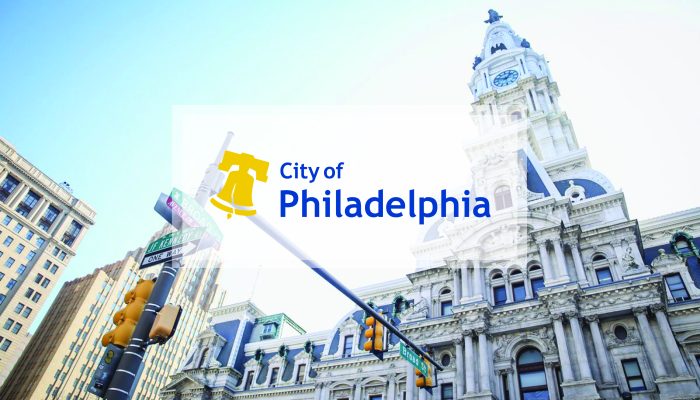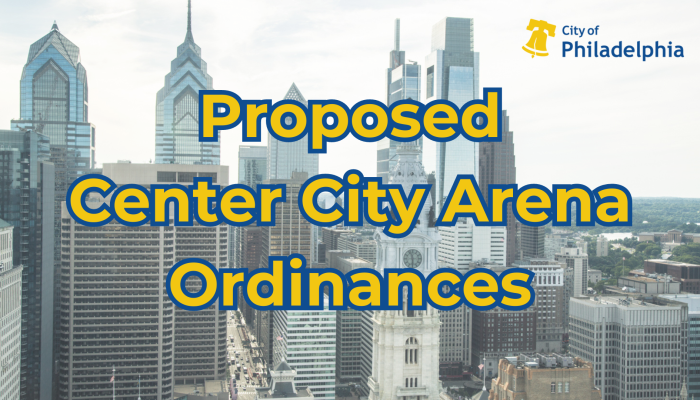Philadelphia has a long history of fighting for LGBTQ civil rights. In fact, Philadelphia protests seeking equality for LGBTQ people predate the famed Stonewall riots.
From 1965 to 1969, demonstrators picketed at Independence Hall on July 4. The “Annual Reminder” protests pointed out that LGBTQ Americans did not have basic civil rights protections.
The protests were among the earliest for LGBTQ rights in the United States. These marches – along with Stonewall in 1969 and the first Gay Pride Parade in 1970 – turned a grass roots campaign into a civil rights movement. (Masthead photo: Group protest at Independence Hall – Photo by Joseph T. Martin, Courtesy of Temple University Digital Collection. Photo taken on July 4, 1965.)
Barbara Gittings was a key organizer of the July 4 protests. Many see Gittings, who lived at 241 S. 21st St. with her partner Kay Lahusen, as the mother of the LGBTQ civil rights movement. 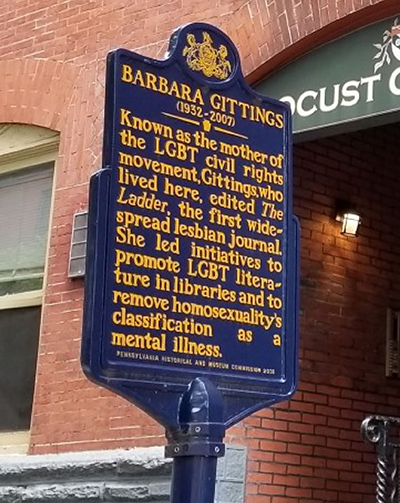
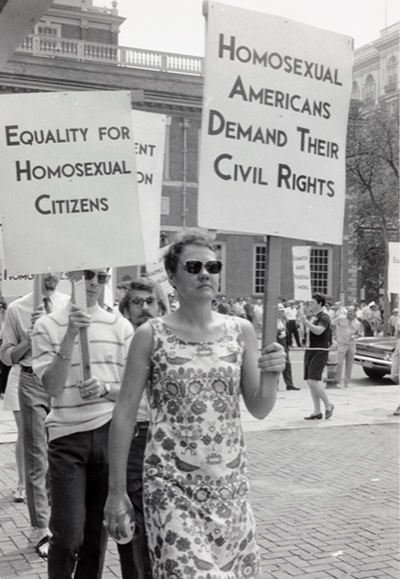
Gittings was the editor of The Ladder, the first widely circulated lesbian journal. Her activism was influential in the American Psychiatric Association ending its classification of homosexuality as a mental illness in 1973.
Gittings helped start the ongoing fight to end workplace discrimination against LGBTQ people. She spoke at Philadelphia’s first gay pride event in 1972, the parade for which fittingly ended at Independence Hall.
Historical markers recognize the role of both Independence Hall and Gittings’ home in the fight for LGBTQ equal rights. Gittings’ home is part of the Rittenhouse Fitler Historic District.
Photo: Barbara Gittings is shown here picketing at the 1969 Annual Reminder at Independence Hall. Photo by Nancy Tucker, Courtesy Lesbian Herstory Archives. Photo taken on July 4, 1969.

